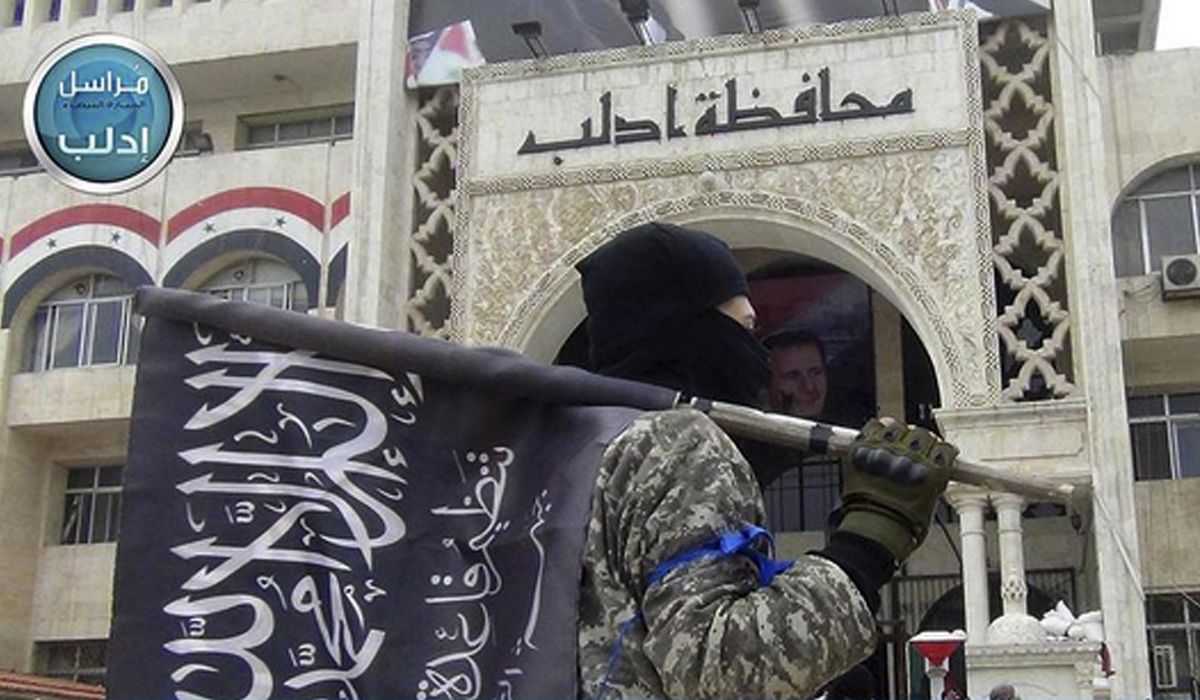USAID paid for meals that went to Syrian terrorists

American taxpayers paid for hundreds of thousands of meals that went to al Qaeda-affiliated fighters in Syria, federal prosecutors revealed in announcing charges against the NGO employee they say was responsible for it.
Mahmoud Al Hafyan ran the Syrian division of the nongovernmental organization and skimmed as much as $10 million worth of meals paid for by the U.S. Agency for International Development.
The meals were supposed to go to Syrian refugees upended by that country’s civil war, but Mr. Al Hafyan allowed members of the Al-Nusrah Front, the al Qaeda-linked terrorist organization, to come collect the meals, U.S. investigators said as they unsealed an indictment Tuesday.
Mr. Al Hafyan cooked the books to try to hide the diversions, but two whistleblowers came forward to report him, authorities said. They suggested he then faked a kidnapping attempt to try to argue he was forced to divert the food kits, but the details and timing of the kidnapping undercut his claim.
All told, 380,000 meal kits were skimmed off for the Al-Nusrah Front in what authorities called a shocking abuse of U.S. taxpayers’ generosity.
“Not only was Al Hafyan supporting violent terrorists, but he was stealing money from the U.S. government that was meant for humanitarian efforts,” said Sanjay Virmani, special agent in charge of counterterrorism at the FBI’s Washington field office.
Court documents didn’t name the NGO but did list the federal grant numbers involved. Those grants trace back to Catholic Relief Services.
An updated arrest warrant was issued for Mr. Al Hafyan in February, but he remains at large. His last known location was Gaziantep, Turkey.
No lawyer was listed for him in court records.
USAID declined to confirm the name of the NGO, citing “safety reasons.”
CRS didn’t respond to multiple inquiries for this story.
The Al-Nusrah Front was one of the groups fighting to overthrow Syria’s government, led by Bashar al-Asad. Prosecutors described it as an affiliate of al Qaeda in Iraq. It was also affiliated with figures in the Islamic State, but they had a falling out in 2013.
The court documents don’t say what the group did with the food kits, but U.S. intelligence officials say the ANF, in an effort to sway the loyalty of average Syrians in territory the group controlled, strove to provide some civil services and humanitarian assistance.
Authorities said Mr. Al Hafyan worked with at least two confederates who maintained the warehouse storing the food. They diverted entire truckloads of food, which the ANF picked up from the warehouse.
Damien Tymes, a USAID inspector general special agent, told the federal court in Washington that Mr. Al Hafyan was also personally skimming some of the kits, which cost about $25 apiece.
He said USAID put the total amount stolen at $9.3 million to $10.1 million over four years. That’s out of $122 million the NGO was given.
Authorities say they were tipped off by employees of the NGO. Both witnesses said they saw members of the terrorist group — displaying Al-Nusrah Front flags — come and claim food kits.
One witness said the NGO’s books were cooked to conceal the fraud, according to court documents filed in the case.
USAID eventually hired a monitor to visit villages where food was supposed to be delivered. That’s when they realized the extent of the diversions.
USAID said it shut down the food program after it was “made aware of irregularities” in December 2017.
“USAID has robust risk mitigation measures in place within our humanitarian programs to help ensure that the assistance reaches those for whom it is intended,” the agency said.
When investigators asked Mr. Al-Hafyan about the diversions, he claimed he was forced to make them as part of a deal to ensure the “safety” of his personnel. He also claimed he’d been kidnapped by ANF operatives.
But the kidnapping came after the diversions began, and the whistleblowers said it was a stunt. They said Mr. Al Hafyan was returned unharmed after a short time, both of which broke the usual pattern for ANF kidnappings.
Investigators also found a spreadsheet on Mr. Al Hafyan’s cellphone that listed thousands of kits going to known Al-Nusrah Front personnel.



